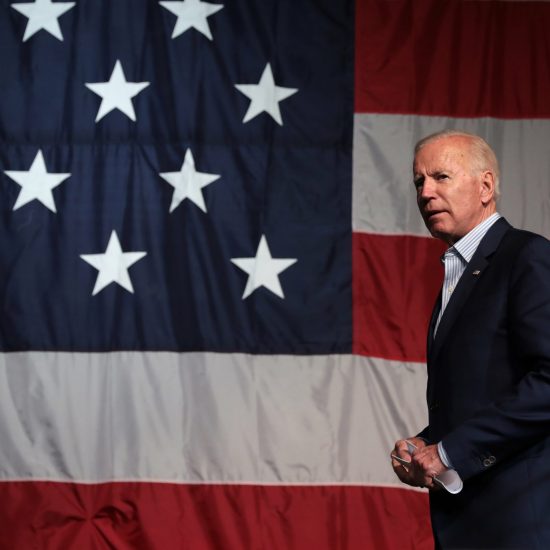
The banking caucus
Economic stability and improved bank safety haven’t stopped supporters of the Choice Act from moving forward with tearing down Dodd-Frank. The bill was introduced in September by Rep. Jeb Hensarling, a Texas Republican who is a deregulation crusader and friend of Vice President Mike Pence; Pence represented Indiana in the House from 2001 to 2013 and was a critic of Dodd-Frank when the law passed in 2010.
“This so-called financial reform bill will kill jobs,” Pence said in a statement days after Dodd-Frank passed.
Hensarling managed Pence’s unsuccessful campaign for House minority leader in 2006. When Pence left Congress to become governor of Indiana, Hensarling invoked scripture in a farewell speech from the House floor.
“Mike Pence is my friend that sticketh closer than a brother,” Hensarling said.
In November, Hensarling told members of the Exchequer Club in Washington, a group of professionals from trade associations, regulatory agencies and the financial industry, that “there has been a fairly constant dialogue with the Trump transition team about the Choice Act.”
Hensarling is a member of the so-called “banking caucus,” a group of lawmakers the Center for Public Integrity identified in 2014 as having close ties to the financial industry and having received some of the largest campaign contributions from banks. Along with Hensarling, three of the five Republican cosponsors of the Choice Act also were members of the banking caucus: Sean Duffy from Wisconsin, Blaine Luetkemeyer from Missouri and Scott Garrett from New Jersey, who lost his 2016 re-election bid. Two other sponsors of the bill were Reps. Bill Huizenga, R-Mich., and now-retired Randy Neugebauer, R-Texas.
As chairman of the House Financial Services Committee, Hensarling is the ringleader. For years, he has tried to unwind Dodd-Frank and end what he calls the “regulatory waterboarding” of the financial sector.
“I will not rest until Dodd-Frank is ripped out by its roots and tossed on the trash heap of history,” Hensarling told American Bankers Association members last year.
Over the course of their careers, Hensarling and the three cosponsors who are included in the banking caucus have raised more than $2.8 million from commercial banks, $4 million from securities and investment firms, and $3 million from insurance companies, according to the Center for Responsive Politics.
The financial sector is Hensarling’s top campaign donor. Since first coming to Congress in 2002, commercial banks have given Hensarling more than $1.35 million in contributions, just behind the insurance industry ($1.4 million) and the securities and investment industry ($1.41 million), according to the Center for Responsive Politics. Hensarling’s take from the financial industry dwarfs his colleagues. On average, active House members have received about $162,000 from the financial sector.
Among Hensarling’s top donors are the nation’s two-largest banks — JPMorgan Chase & Co. and Bank of America Corp. — and the fourth largest, Wells Fargo & Co. Commercial banks gave $390,150 to Hensarling’s campaign committee and leadership PAC for his 2016 re-election campaign, behind only the insurance industry ($430,850) and securities and investment firms ($414,945).
Hensarling’s office confirmed he plans to re-introduce the Choice Act in this Congress.
Financial institutions gave similar amounts to the other banking caucus members who sponsored the Choice Act. In 2016, insurance, commercial banks, and securities and investment firms combined to contribute $658,754 to Duffy, $899,077 to Luetkemeyer and $571,755 to Garrett.
Huizenga, another sponsor of the bill, has received over $1 million from the financial industry since he was first elected in 2009, and sponsor Neugebauer, who retired from Congress last year, collected over $1.8 million since 2001.
Waiting in the Senate is Sen. Mike Crapo, R-Utah, who took over the Senate Banking Committee this session. He has collected over $3 million from the financial industry since first coming to Congress in 1991, including top donor JPMorgan Chase.
One of the trade groups that has given mightily to the banking caucus is the Consumer Bankers Association, which counts Bank of America, Wells Fargo, Citigroup and Chase as members. The group gave more than $400,000 to political campaigns in 2016 according to data collected from the Center for Responsive Politics.
The Choice Act presents “a chance to look at [Dodd-Frank] to ensure it will be good for banks and consumers,” said Richard Hunt, president and chief executive officer of the association.
Financial Services Committee Ranking Member Maxine Waters, D-Calif., is less enthused. “This bill is so bad that it simply cannot be fixed,” she said during a committee session discussing the bill. “It’s clear that this is a rushed, partisan messaging tool.”
‘Sea change at the CFPB’
The Choice Act also targets the Consumer Financial Protection Bureau, which Dodd-Frank established to protect consumers from “unfair, deceptive or abusive practices” of the financial sector, according to the law.
But Hensarling believes the agency is an example of government run amok, claiming the CFPB has “infringed on the economic freedoms of consumers.”
That sentiment, along with Trump’s election win, “will result in a sea change at the CFPB,” said Alan Kaplinsky, who leads the Consumer Financial Services Group at the law firm Ballard Spahr. “There’s a lot of discontent among the companies that are regulated and supervised and who have become the target of the CFPB.”
The most likely change would replace the CFPB’s individual director, appointed by the president and confirmed by the Senate, with a five-member commission that would have three Republicans during the Trump administration. The panel would be subject to congressional oversight and appropriations. Bank executives and their allies in Congress say the agency’s current director — former Ohio Attorney General Richard Cordray, a controversial Obama appointment initially made during a congressional recess and confirmed by the Senate only 18 months later — has too much power and is unaccountable to Congress.
CFPB crackdowns on practices the agency deems “abusive” have led some Republicans to charge that the agency is straying from enforcement into advocacy. When the CFPB announced new rules regarding the payday-loan industry, which has been charged with targeting low-income individuals with high-interest loans that can trap them in long-term debt, Hensarling fired back at Cordray.
“Accountable to no one, he alone decides for all Americans whether they can take out a small-dollar loan to meet emergency needs,” Hensarling said in a press release.
The proposed changes to the CFPB, which include repealing the CFPB’s authority to ban products and services that regulators deem abusive, are aimed at reducing what some Congress members believe are controversial actions, like the payday-lending rules.
But the agency still should enforce the law under a Republican-led CFPB, Kaplinsky said. “There are plenty of clear cut violations of law that [the CFPB] can target without taking extreme positions where the industry is caught off guard and surprised,” he said.
Sens. Mike Lee, R-Utah, and Ben Sasse, R-Neb., wrote a letter to Pence this month urging the administration to fire Cordray. Neugebauer, one of the sponsors of the Choice Act, is said to be Trump’s choice to head the agency.
Proponents of reform also say a five-person commission would allow for more industry input in CFPB decision making. Changing the CFPB’s funding source from the Federal Reserve to congressional appropriations also would make the agency more accountable by placing it under the supervision of elected officials in Congress.
Or, the change could inject politics into the agency, say CFPB supporters.
“What we know about commissions is they tend to be gridlocked,” said Yana Miles, policy counsel at the Center for Responsible Lending, a nonprofit research organization that advocates for fair lending practices.
A divided commission may prevent the agency from quickly responding to abusive practices by financial institutions, critics of the proposed structure argue.
“It wasn’t that long ago that we saw the waves of predatory lending that nearly destroyed our economy,” Miles said. The CFPB “is the one thing out there standing between consumers and the wild wild west of the days leading up to the crisis.”
CFPB critics, nevertheless, have the courts on their side, so far. A three-judge panel of the U.S. Court of Appeals for the District of Columbia Circuit ruled last year that the agency’s single-director structure is unconstitutional. The CFPB has asked the full D.C. Circuit to rehear the case.
Supporters say the CFPB is accountable to consumers, as illustrated by a record of punishing banks’ wrongdoing. Since opening its doors in 2010, CFPB actions have resulted in more than $11 billion in compensation or debt reduction to consumers. Among its major cases:
- One of its most high-profile decisions came last year, when the CFPB fined Wells Fargo $100 million for opening accounts without customers’ consent, with another $35 million going to the Office of the Comptroller of the Currency and $50 million to the City and County of Los Angeles.
- The CFPB brought complaints in 2014 against Corinthian Colleges, a for-profit college accused of overselling the employability of its graduates, and ITT Educational Services, a for-profit institution accused of predatory student lending.
- On Jan. 18, the CFPB announced a lawsuit against Navient Corp., the nation’s largest student-loan servicer, for “systematically and illegally failing borrowers at every stage of repayment.”
The CFPB relied partly on its mandate to prevent abusive practices to pursue the Wells Fargo case, Miles said. Under changes in the Choice Act, “a Wells Fargo situation could pop up again and it would either not be addressed or would take a much longer time to get to it,” Miles said.




